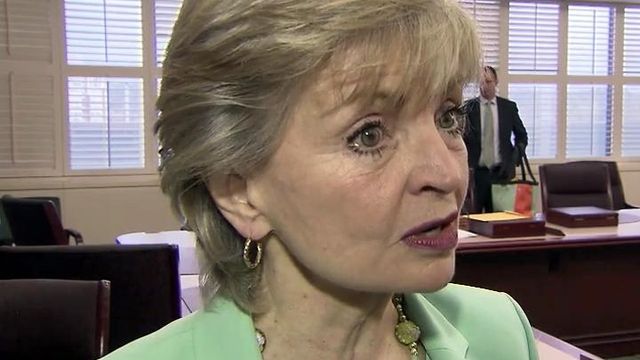Atkinson concerned by Senate school grading plan
State Superintendent of Public Instruction June Atkinson said Thursday that legislation moving forward in the Senate that would assign letter grades to each North Carolina public school would provide a misleading picture of their annual performance.
Posted — UpdatedSome lawmakers have complained that the system doesn't include a component for student academic growth, noting more than two-thirds of high schools statewide would receive a D or F grade under the legislation.
"We want to be truthful and we want to be fair, and we want the grading system to accurately reflect how our schools are performing. Growth is a critical component of how we should grade our schools," Atkinson said.
Broughton High School in Raleigh, for example, could receive a D under the bill's scoring system, despite having an 85 percent graduation rate and being named last year as one of the nation's best high schools by Newsweek magazine.
"It does make me pretty mad because I've put in hard work and my friends have put in hard work to make this school better," Broughton High senior Darius Kirksey said. "I think it's a great school."
Senate leader Phil Berger, who is the primary sponsor of the Excellent Schools Act, said his proposal uses the same system the Department of Public Instruction uses to determine "School of Excellence" and "School of Distinction" honors, but assigning letter grades to the results would make the differences easier to understand by the general public.
Mingling student growth in with that, he said, could allow a school where students aren't passing end-of-course tests to have an artificially high grade.
"You could have a school performing at the D level that looks like a B, based on the model (Atkinson) has, and I don't think its conveying an accurate information to the public," said Berger, R-Rockingham.
Atkinson said having too many failing schools could hurt North Carolina's economy.
"We don’t want to stifle economic development of people moving to North Carolina or people selecting North Carolina as a place to own and expand a business," she said.
Berger countered by saying that an accurate picture of student performance will tell state and local officials where changes, including more support, are needed.
"It’s important to find ways to build support for public schools," he said. "I think that assists us in generating the necessary will to provide resources or help those schools will need to improve."
The House has a competing proposal that includes academic growth in scoring schools and reaches a final grade by comparing each school to a statewide mean. It's unclear how lawmakers will reconcile the two bills.
Berger's legislation also includes provisions for eliminating teacher tenure and implementing merit pay for teachers.
Related Topics
Copyright 2024 by Capitol Broadcasting Company. All rights reserved. This material may not be published, broadcast, rewritten or redistributed.






